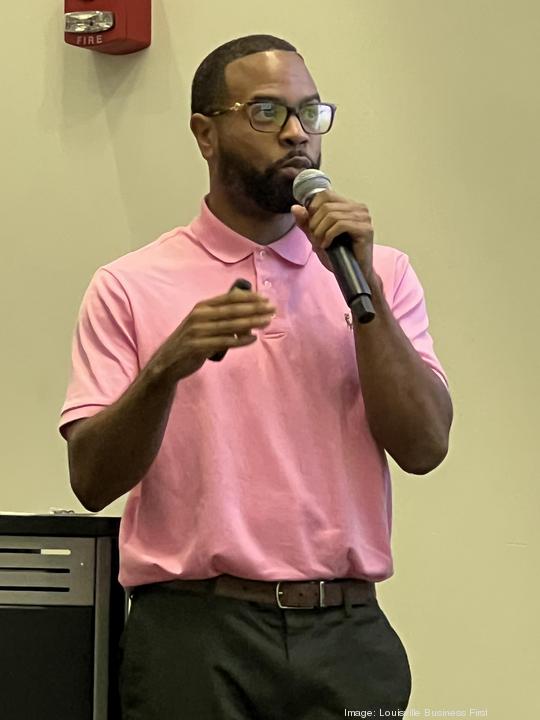
C.J. Carter can recall all the details of his first seizure. He was with his family on vacation at the Great Wolf Lodge in Mason, Ohio, on the Tuesday after Father’s Day in 2018.
Then the next seizure hit. And another.
Following the fifth seizure, he was diagnosed with temporal lobe epilepsy. An MRI revealed that he had what is known as a cavernoma — a malformation of blood vessels — behind his left eye. Carter realized that he had never had the seizures until after he stopped using cannabis products at the request of his now ex-wife.
"I'm not a doctor or anything, but it would seem like throughout my life, I had already been medicating myself ... this whole time and that is one of my passions and why I'm in this space,” Carter said.
Following his medical revelation, joined Minorities for Medical Marijuana (M4MM), a national organization focused on social equity in the growing cannabis industry. After spending time lobbying for M4MM, he started to see all the “voids” that existed in the cultivation, production and distribution of hemp and cannabis products.
To address some of those issues, he co-founded Hola Cannabi, a Black-owned consulting company for the cannabis industry. Carter serves as the company's COO and is one of the four partners along with CEO — and former University of Louisville football star — Mario Urrutia, CFO Ace McGill and chief technology officer Brian Smith.
When it began, the group served as brokers to sell hemp grown by farmers in Kentucky. After growing tired from the “cumbersome” nature of that practice, the group switched its focus in late 2021 to the non-plant touching ancillary businesses, spanning from consulting services to commercial real estate to coming up with a robust database to create the platform for a new end-to-end enterprise resource planning (ERP) software. Carter said his company, which is pre-revenue, is currently in the process of raising $1.5 million to build out the software and run operations for the first year.
"To me, that is where the real growth is,” Carter told me before he gave his presentation as a finalist at the Derby Diversity Week’s Ideathon in Downtown Louisville last week. “And a lot of people don't think about the non-plant touching ancillary businesses. Everybody wants to own a dispensary. Everybody wants to grow. Everybody wants to have a different service, but on the technology side, nobody's thinking about technology."

Carter also said that the topic of commercial real estate has also been ignored. In February, Carter started CannaMercial Realty Group through Coldwell Banker McMahan, which is in the process of gathering a group of investors in a limited partnership. The funds from that partnership, which he hopes will total around $35 million, would go into purchasing 15-25 green-zoned properties for cannabis production and related commercial use facilities.
“I'm positioning myself to be the go-to cannabis real estate agent once legalization happens,” said Carter, who added that Kentucky is the “best place in the world to cultivate and harvest cannabis due to our soil” and its limestone content.
But when will legalization actually happen? As five states have put recreational cannabis use on the ballots for Election Day on Nov. 8, Kentucky remains one of 13 states in the country where not even medical marijuana is legal.
House Bill 136 would allow doctors to prescribe cannabis to help ease the pain of patients with a cluster of qualifying chronic conditions — including epilepsy. Last March, the measure passed by the Kentucky House of Representatives 59-34 before being stalled out on the Senate floor.
The bill’s main sponsor is Rep. Jason Nemes, R-Louisville, who told me that at first he was against the idea of medical marijuana before listening first to his constituents and then to the local medical community.
“It’s a no brainer. It would help a lot of people ... If my kid had epilepsy and his neurologist said that this would help him, in a New York-minute I’d break the law and get it for him,” Nemes said. “Who wouldn’t?”
Carter has met with Nemes on numerous occasions. The last time the two met, Carter said that Nemes told him that there was a 45% chance that the bill would pass through the Senate. Those odds should go up when the state legislation opens in January.
This time around, the bill will start in the Senate to get approval, before looking to get its approval from the House of Representatives — for a third time.
“The movement gets stronger every year,” Nemes added.
Carter is confident that one day the bill will be passed. He referred to a quote by the famed Mark Twain. Although the quote is well known, there is a debate whether he was actually referring to the Bluegrass State.
"He said 'When the end of the world comes, I want to be in Kentucky, because everything there happens 20 years after it happens anywhere else,’” Carter said. “That is really this marijuana legislation. We're just really behind the eight ball."










